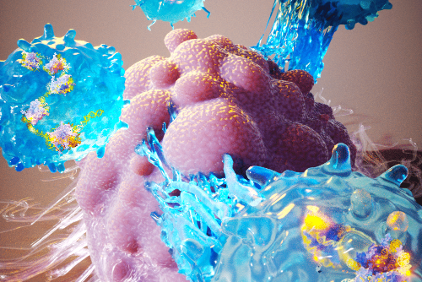Engineering TCR Therapy
T-cell receptor (TCR) therapy is an innovative approach in cancer immunotherapy that involves engineering T cells to express TCRs that specifically recognize and bind to tumor-associated antigens (TAAs) or neoantigens presented by major histocompatibility complex (MHC) molecules on the surface of cancer cells. This allows T cells to specifically target and destroy tumor cells.

Mechanism of Action
Isolation of TILs: TILs are extracted from tumor biopsies. This process involves culturing the tumor tissue in vitro to expand the lymphocytes that specifically recognize and attack tumor cells.
TCR Sequencing: The TCRs from the expanded TILs are sequenced to identify the genes that encode the TCRs. This step is crucial for determining which TILs are most effective against the tumor.
- Cloning TCR Genes: The identified TCR genes are cloned into a suitable expression vector, often using viral vectors to facilitate genetic modification of T cells.
- Transduction: The cloned TCR genes are introduced into naïve or memory T cells, typically obtained from the same patient or a healthy donor. This is done using techniques like lentiviral or retroviral transduction.
- T Cell Expansion: The genetically modified T cells are then expanded in the laboratory using cytokines, such as IL-2, to produce a large population of TCR-engineered T cells.
- Reinfusion: Once sufficient numbers of TCR-modified T cells are generated, they are reinfused into the patient. These engineered T cells can now specifically recognize and attack tumor cells expressing the target antigens.

Advantages of TCR Engineering from TILs
1. Enhanced Specificity
TILs are pre-selected for their ability to recognize tumor antigens, which often results in a more effective and specific TCR.
2. Broad Antigen Recognition
TCRs derived from TILs can target intracellular antigens presented by MHC molecules, expanding the range of potential therapeutic targets compared to traditional CAR-T therapies.
3. Personalized Therapy
1.This approach is highly personalized, as the TCRs are derived from the patient’s own immune response to their specific tumor.
